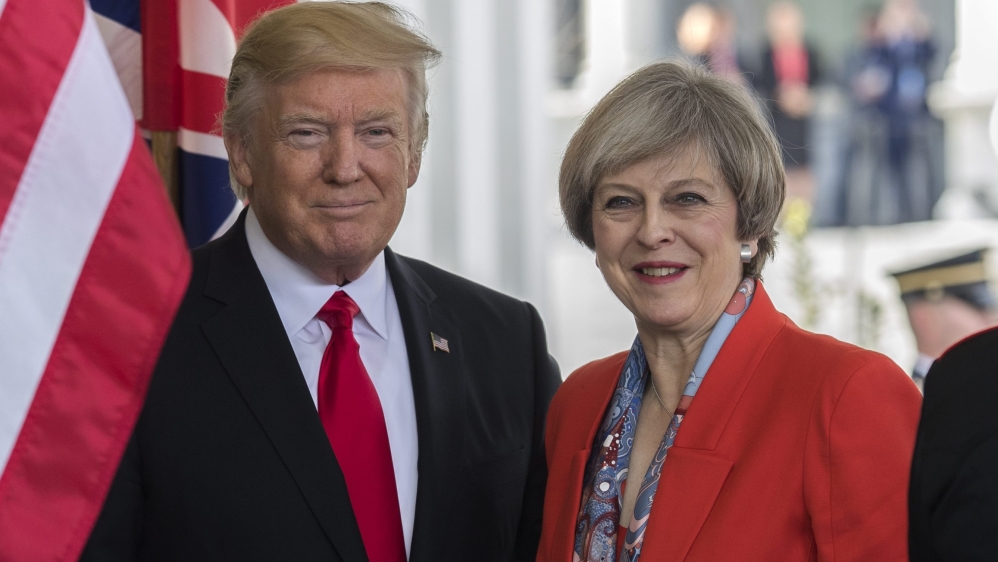European Union leaders have agreed on a controversial plan to help stem the flow of African migrants from Libya this spring.
At a summit in Malta, the bloc's leaders on Friday decided to give 200m euro ($215m) to Libya's fragile government to step up efforts to stop migrant boats in the country's territorial waters.
Under the plan, the EU will also provide support for the setting up of "safe" refugee camps in Libya and the voluntary repatriation for refugees willing to return to their countries of origin.
It will also boost training and equipment to Libya's struggling coastguard and get more involved with neighbouring nations, including Algeria, Tunisia and Egypt, to contain the flows.
Aid groups, however, accused the EU, whose leaders are under popular pressure to be seen to be controlling immigration, of abandoning humanitarian values and misrepresenting conditions in Libya, where the UN-backed government of Fayez Seraj has only a shaky and partial hold on the country.
"Libya is not a safe place and blocking people in the country or returning them to Libya makes a mockery of the EU's so-called fundamental values of human dignity and rule of law," said Medecins Sans Frontieres, which works in camps there.
Others warned the deal could result in women and children being returned to inhumane conditions and left vulnerable to rape, beatings and forced labour as well as forcible repatriation to uncertain fates in their home countries.
"Sending children back to a country many have described as a living hell is not a solution," said Ester Asin of British charity Save the Children, ahead of the approval of the widely-trailed new EU strategy.
READ MORE: 2016 - The year the world stopped caring about refugees
Yves Pascouau, director of migration and mobility policies at the European Policy Centre, told Al Jazeera, that talk of "stemming" refugee flows and breaking the business models of people smugglers was futile.
"We all know that if we really want to break this business model, we also need to provide legal ways to enter the EU, which [do not exist] today," he said.
"There is only one focus [at the EU level] and that's the security-oriented dimension; the idea that we're going to stop arrivals from Turkey first and then from Libya."
The chaos in Libya has thwarted any hope of a quick fix in the way that a controversial EU deal with Turkey a year ago led to a virtual halt to a migrant route to Germany via Greece along which a million asylum-seekers travelled in 2015.
READ MORE: Ten countries host half of world's refugees
The agreement on Friday came a day after Seraj signed a deal with Italy, which offered 200 million euros ($215 million) of its own. Rome fears new arrivals this spring, following a record 181,000 irregular immigrants last year, would put pressure on services and risk a popular backlash - especially since its EU neighbours are no longer letting most migrants travel north out of Italy.
Many EU governments are sceptical that the latest measures can have much effect on migration. One senior diplomat called it a "long shot". Several said the declaration was intended partly to appease Italian demands that the EU be seen to be acting.
 |
| File: Migrants rescued by Libyan coast guard in the Qara Polly area off the country's coast [EPA] |
Deportation plans
In the longer run, analysts says European leaders are placing hopes in using their aid muscle in Africa to reduce incentives for people to leave, while giving African governments reasons to take back citizens who fail to win asylum in Europe.
Deporting more of those who reach Italy is part of a wider plan to send signals to Africans not to risk the Sahara and Mediterranean in the vain hope of a better life.
At Agadez in Niger, numbers gathering to cross the Sahara have plunged in recent months, which some EU officials think may indicate that strategy of deterrence is working. However, people smugglers may just have altered routes.
British Prime Minister Theresa May attended despite her plan to start negotiations by next month to take the UK out of the EU - a reminder, British officials said, that she wanted to keep cooperating with European neighbours after Brexit.
 |
| Trump, left, greets May as she arrives at the White House in Washington, DC, on January 27 [Shawn Thew/EPA] |
May also had a chance to brief peers on her visit last week to US President Donald Trump, whose backing for Brexit, doubts on free trade, barring of refugees and warmth toward Russia have all raised alarm in Europe.
Some European leaders disapprove of May's rush to embrace Trump, although some, notably in the east, have endorsed his tough line against Muslim immigration.
French President Francois Hollande said European governments should stick together, not seek special favours from Washington.
German Chancellor Angela Merkel said: "Europe has its fate in its own hands ... The clearer we are about how we define our role in the world, the better we can also take care of our Transatlantic relations."
The European leaders will turn their attention after May leaves later in the day to how to shore up popular support for the EU. They will hash out ideas for a declaration on the bloc's future when they mark its 60th anniversary in Rome in March.





